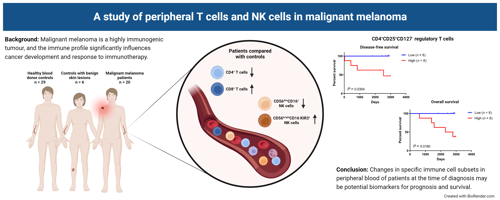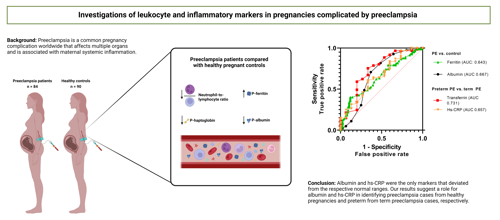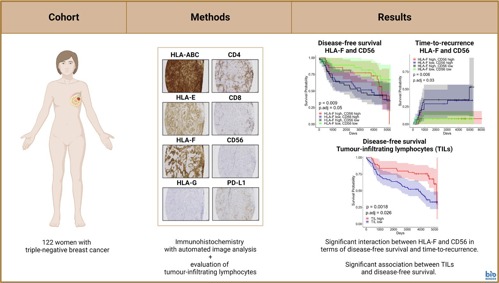Nyheder

Vi forsker i:
Vi udforsker genetiske og biokemiske risikofaktorer og deres interaktion med miljømæssige faktorer i patogenese og forløb af store folkesygdomme inden for lungemedicin, kardiologi og cancer.
Metodemæssigt anvender vi store befolkningsundersøgelser som Herlev/Østerbroundersøgelsen, Næstvedundersøgelsen og Østerbroundersøgelsen, samt data fra hele Danmarks befolkning via Danmarks Statistik til klassiske epidemiologiske kohortestudier, humane studier med molekylærgenetik og mendelske randomiseringsstudier.
Vi har netop udgivet et nyt studie om immunsystemet ved modermærkekræft (malignt melanom) i et videnskabeligt tidsskrift.
Vi har undersøgt immunceller i blod fra patienter med modermærkekræft i forhold til immunceller fra raske personer og i forhold til prognose og overlevelse. Resultater fra vores studie viser, at bestemte typer af immunceller i blodet fra patienter på diagnosetidspunktet kan fungere som biomarkører og hjælpe med at forudsige patientens prognose og overlevelse. Et højt niveau af regulatoriske T-celler var korreleret med dårlige prognose og kortere overlevelse. Derudover var niveauet af forskellige T-celle- og Natural Killer (NK)-cellegrupper forskellige mellem patienter og raske personer.
Modermærkekræft er en af de mest udbredte kræftformer i verden. Der er potentiale for at benytte immunterapi til behandling af modermærkekræft og for at udnytte dette potentiale er studier som vores og resultaterne derfra vigtige.

Nanna H. Pedersen*, Helene B. Jeppesen*, Gry Persson, Sophie Bojesen, Thomas V. F. Hviid.
A new paper on immune cells in peripheral blood of malignant melanoma patients has been published.
The results of our study indicate that changes in specific immune cell subsets in blood samples from malignant melanoma patients collected at the time of diagnosis may be potential biomarkers for prognosis and survival. A high level of regulatory T cells was correlated with poor overall survival and disease-free survival. The levels of various T cell and Natural Killer (NK) cell subsets were different between patients and healthy controls.
Malignant melanoma is one of the most common cancers worldwide, and our study and the results we present aid in the development of improved immunotherapeutic strategies for the treatment of patients with malignant melanoma.
Nanna H. Pedersen*, Helene B. Jeppesen*, Gry Persson, Sophie Bojesen, Thomas V. F. Hviid. An increase in regulatory T cells in peripheral blood correlated with an adverse prognosis for malignant melanoma patients – A study of T cells and natural killer cells. CRIMMU, 2023.
Vi har udgivet et nyt studie om immunsystemet ved svangerskabsforgiftning (præeklampsi) i et videnskabeligt tidsskrift.
Præeklampsi er en af de hyppigste graviditetskomplikationer verden over, der i svære tilfælde og ubehandlet kan føre til død hos både mor og foster. Sygdomsmekanismen er endnu uklar, men mange studier peger på, at tilstanden er præget af øget inflammation hos moren. Man kan måle, om der er inflammation i kroppen ved at måle akutfasereaktanter i blodet.
Vi har målt akutfasereaktanter og immunceller i blodet fra gravide med præklampsi i forhold til raske gravide i tredje trimester med henblik på at undersøge, om disse immunologiske biokemiske markører kan bruges til at understøtte en præeklampsi-diagnose sent i graviditeten. Vores resultater viste, at i modsætning til immuncellerne, så afspejlede nogle af akutfasereaktanterne (ferritin og albumin) et højere inflammationsniveau hos gravide med svangerskabsforgiftning sammenlignet med raske gravide. Ydermere kunne niveauerne af visse akutfasereaktanter (transferrin og højsensitivitets C-reaktivt protein) skelne mellem undertyper af svangerskabsforgiftning hos de gravide patienter.

Hiba Iraqi Møller, Gry Persson, Freja Bluhme Klok, Fie Juhl Vojdeman, Morten Lebech, Thomas Vauvert F. Hviid.
Preeclampsia is a common pregnancy complication involving multiple organs. If it is not treated in severe cases, the risk of fetal and maternal death increases markedly. The pathophysiological mechanisms remain unclear. There is increasing evidence that preeclampsia is characterized by maternal systemic inflammation.
We have measured levels of certain acute phase reactants and immune cells in peripheral maternal blood in pregnant women with preeclampsia and healthy pregnancies during the third trimester. The aim was to investigate, whether these inflammatory markers could support a preeclampsia diagnosis late in pregnancy. Our results showed that, in contrast to the levels of immune cells, plasma levels of ferritin and albumin reflected increased inflammation in cases with preeclampsia compared with healthy pregnancies. Moreover, plasma levels of transferrin and high sensitivity C-reactive protein differentiated between subtypes of preeclampsia and reflected higher inflammation in preterm preeclampsia (delivery before gestational week 37+0) compared with term preeclampsia (delivery at or after gestational week 37+ 0).
Hiba Iraqi Møller, Gry Persson, Freja Bluhme Klok, Fie Juhl Vojdeman, Morten Lebech, Thomas Vauvert F. Hviid. Investigations of leukocyte and inflammatory markers in pregnancies complicated by preeclampsia. JRI, 2023.
Effect modification between HLA-F and CD56 markers reveals differences in survival for triple-negative breast cancer patients
Triple‐negative breast cancer (TNBC) is usually aggressive and challenging to treat. With high tumour immunogenicity TNBC patients might benefit from immunotherapy. We evaluated heterogeneous immune profiles of individual tumours in relation to clinical development to identify immune markers and their mutual expression. We assessed 122 biopsies from patients with primary TNBC tumours by automated image analysis of immunohistochemically stained tissue microarrays. Tumour‐infiltrating lymphocytes (TILs), expression of HLA I molecules (HLA‐ABC, HLA‐G, HLA–E, HLA‐F) and their mutual associations, as well as associations with other immune response markers (PD‐L1, FOXP3, CD4, CD8, CD56) were investigated together with survival outcomes.
Analysis of effect modification between HLA‐F and CD56 showed longer disease‐free survival and time‐to-recurrence for tumours with low expression of both markers. TILs were significantly associated with tumour grade and with HLA‐F, PD‐L1, FOXP3 and CD8 expression, and were significantly associated with longer disease‐free survival, also in multivariate analysis. Expression of all immune markers was positively correlated with each other, except CD56.
The study highlights the complex immune regulation in TNBC stressing the importance of evaluating the immune landscape of individual tumours to identify patients that can benefit from immunotherapy. The finding of an effect modulation between HLA‐F and CD56 is one aspect.

Nanna Heldager Pedersen, Wenna Nascimento Melsted, Thomas Scheike, Jens Ole Eriksen, Frances M. Reznitsky, Michael Bzorek, Anne-Vibeke Lænkholm, Thomas Vauvert F. Hviid. Effect modification between HLA-F and CD56 markers reveals differences in survival for triple-negative breast cancer patients. Human Immunology 2024;85(6):111152. doi: 10.1016/j.humimm.2024.111152.
Reduced expression of programmed cell death protein 1 on peripheral regulatory B cells in pre-eclampsia – Signs of impaired immune suppression
Immunological changes are believed to be a part of pre-eclampsia etiology. This study investigated the distribution of the specific peripheral B lymphocyte phenotypes in pre-eclampsia cases compared to uncomplicated pregnancies. The study cohort included 29 women with pre-eclampsia and 14 women with uncomplicated pregnancies. Blood samples were collected in the third trimester of primigravidae pregnancies, and immune cells were analyzed using flow cytometry. Cases with pre-eclampsia showed a significantly reduced expression of programmed cell death protein 1 (PD-1) on CD27+CD24hiCD38hi regulatory B cells compared with control pregnancies (p = 0.002; multivariate logistic regression: p = 0.009). Trends for a reduced PD-1 expression on regulatory CD27+CD24hi B cells and on live CD19+ B cells were observed in cases of pre-eclampsia (p = 0.011 and p = 0.035; espectively). No significant differences between pre-eclampsia cases and controls in percentages of B cells, B1a cells, plasmablasts, naïve B cells, transitional/immature B cells, memory B cells, regulatory CD27+CD24hi B cells and regulatory CD27+CD24hiCD38hi B cells were observed. This is the first study to report reduced PD-1 expression on live B cells and regulatory B cells in pre-eclampsia. These results are in line with previous studies of peripheral regulatory T cells and decidual lymphocytes from pre-eclampsia patients. Reduced PD-1 expression on regulatory B cells in pre-eclampsia could indicate that a lack of immune suppression might play a role in the pathophysiology of pre-eclampsia.
Sophie Brondt Salby, Gry Persson, Nanna Heldager Pedersen, Gökmen Turan, Laura Kimmerslev, Katrine Folmann Finne, Iben Weisdorf, Morten Lebech, Thomas Vauvert F. Hviid. Reduced expression of programmed cell death protein 1 on peripheral regulatory B cells in pre-eclampsia – Signs of impaired immune suppression. Journal of Reproductive Immunology 2025;168:104426. doi: 10.1016/j.jri.2025.104426.
Opdateret tirsdag den 22. apr. 2025
